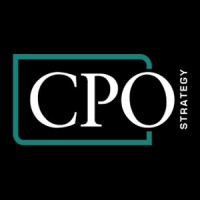What is Contract Management?
Contract Management refers to the systematic administration of contracts made with various parties, including employees, customers, partners, and vendors. This process is crucial for ensuring that all contractual agreements are adhered to and managed effectively. The individual responsible for overseeing contract management is known as a Contract Manager. This role involves negotiating terms, supporting the execution of contracts, and managing the ongoing relationships associated with these agreements. Implementing Contract Management Best Practices can significantly enhance the effectiveness and efficiency of this vital function.
The Role of Contract Management in Procurement
In any business, effective contract management is a cornerstone of administration. In the realm of procurement, this process is particularly vital. It ensures that all contracts are duly acknowledged and signed by the relevant parties, thereby minimizing risks associated with fraud and non-compliance. By establishing clear contractual obligations, organizations can foster better relationships with suppliers and streamline procurement processes.
Learn More: Zycus iContract Solution
Top 5 Contract Management Best Practices
To enhance contract management effectiveness, organizations can adopt several best practices. Below are five proven strategies that best-in-class organizations implement to optimize their contract management processes.
1. Create Dynamic Contract Repositories
A dynamic contract repository is essential for reflecting operational requirements accurately.
- Incorporate Escalation Clauses: During contract negotiations, it’s beneficial to include escalation and de-escalation clauses that are linked to market parameters such as foreign exchange rates and commodity indices. This allows for better adaptability in fluctuating market conditions.
- Set Alerts and Reminders: Establish a system of alerts for specific escalator or de-escalator clauses linked to commodity or Forex indices. This proactive approach ensures timely actions based on market changes.
- Track Compliance: It’s crucial to track and measure compliance with contract terms and quantify the savings accrued from these agreements.
2. Define and Communicate Contract Metrics
Clear communication regarding contract metrics is essential for effective management.
- Link Contracts to Spend: Establishing parameters that link contracts to spending helps in tracking performance.
- Benchmarking: Create benchmark parameters relative to peers and industry standards. This allows organizations to assess their performance and make necessary adjustments.
- Elicit Inputs from Decision-Makers: Involve relevant stakeholders in the determination of these metrics, ensuring that all voices are heard.
3. Conduct Regular Contract Audits
Regular audits are an excellent way to identify opportunities for improvement.
- Improve Visibility: Focus on areas such as currency changes, volume discounts, buyer turnover, clerical errors, and carryover provisions for replacement contracts. Regular audits can help identify discrepancies and areas for savings.
- Create Opportunities: Use audit findings to create opportunities for renegotiating contracts or optimizing terms.
Also Check-out: Infographic- All You Need To Know About Contract Compliance Audit
4. Standardize and Accelerate Contract Authorship
Standardization can lead to significant efficiencies in the contract management process.
- Use a Template and Clause Library: Develop a library of contract templates and clauses that can be easily accessed by relevant stakeholders.
- Define Clauses Clearly: Clearly distinguish between mandatory and non-mandatory clauses, ensuring that all necessary legal requirements are met.
- Continuous Updates: Regularly update templates and clauses to reflect current laws and market conditions. This helps maintain relevance and compliance.
5. Establish a Standard Workflow for Collaborative Authorship
Creating a standardized workflow facilitates smoother collaboration among all parties involved in contract management.
- Define Protocols: Establish clear protocols and procedures for contract negotiation and approval.
- Approval Hierarchies: Clearly define hierarchies for the approval process, ensuring that all necessary stakeholders are involved at every stage.
- Facilitate Access: Ensure that all relevant stakeholders have access to necessary documents during the contract authoring and amendment process. This increases transparency and helps prevent miscommunication.
Staying Current with Trends
In addition to the best practices mentioned above, it’s essential to stay informed about recent trends and industry best practices in contract management. Compliance with legalities not only protects your organization but can also lead to significant cost savings. Effective contract management enhances your organization’s reputation and credibility, making it an integral part of your business strategy.
Conclusion
In today’s competitive landscape, ignoring the importance of contract management can lead to missed opportunities and increased risks. Organizations that implement effective contract management practices not only minimize legal and financial risks but also enhance operational efficiency. By following the best practices outlined above and staying attuned to industry trends, your organization can fully leverage the benefits of robust contract management.
For organizations seeking to revolutionize their contract management processes, investing in specialized software can provide significant advantages. Tools like Zycus Contract Management solution offer comprehensive solutions that streamline contract creation, tracking, and compliance monitoring.
To explore how Zycus can enhance your contract management capabilities, schedule a demo today. Start reaping the benefits of efficient and effective contract management for your organization!
Related Read:
- 10 Best Practices for Procurement Manager
- Ultimate Guide to Contract Management: Benefits & Best Practices
- The Greatest Contract Ever Signed
- Contract Management Software
- Analyst Report – Contracts as a Connector – The case for improved contract management
- White Paper – The Why, What & How of Contract Management












































